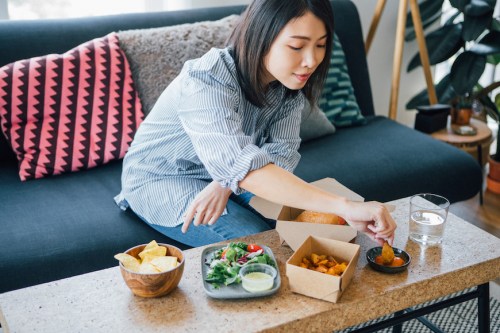I genuinely feared I’d find out about the presidential election results without someone around to either celebrate or commiserate with. That after the better part of a whole year of difficult-to-weather solitude, refreshing “Biden Trump” on Google for the millionth time and finally getting the news would be yet another thing I do tragically alone on the couch. What actually ensued was different, though. Sure, I was technically alone, but I felt connected to people via a symphony of cheers I could hear from a nearby park where I live in Brooklyn, New York, phone calls I had with loved ones, and social media posts echoing the sentiments of relief and joy I felt in my bones. The reason being alone didn’t hurt me in this instance is simple: There’s a difference between being alone and being lonely, and there’s nothing inherently negative regarding the former.
Experts in This Article
clinical psychologist based in San Francisco
“Humans are inherently social creatures, and we need others to maintain our emotional well-being,” says Sarah Adler, PsyD, chief clinical director of therapeutic-services practice Octave. “But interestingly, spending time alone is just as important for us to connect more deeply with ourselves. Being alone is actually just a state; it means that you are not with other people. Loneliness is an emotion, which describes a feeling of sadness attributed to not having connection.”
“Being alone is actually just a state; it means that you are not with other people. Loneliness is an emotion, which describes a feeling of sadness attributed to not having connection.” —Sarah Adler, PsyD
That is to say you can certainly learn how to be happy alone, but it will require you to feel very connected with yourself, and/or the people that you do have in your life. Loneliness, however, can have multiple different faces that are distinct and separate. “Being alone can create many feelings in individuals depending on their individual psychology and circumstances, but the important thing to remember is that emotions are like waves and they pass over time,” Dr. Adler says.
That said, you might feel lonely when you’re struggling with a breakup, divorce, or even death—whether you’re alone or not. “[Loneliness is] associated with feelings of emptiness, being unwanted and the fear of being chronically alone,” says Dr. Adler. “Those feelings kind of lead us to stop engaging in self care, and also make us less likely to reach out and connect. So there’s this feedback loop where it makes us less fun to be around, and so we stop reaching out, we stop connecting, and we get less great feedback from our peers, our partners, our spouses, and our community in general.”
This resonates with me, as someone who spends many weekends alone, and who mostly feels grounded by that choice. I love weekends filled with solo dates, rose lattes, my favorite Marilyn Monroe films, and guaranteed multiple orgasms. But if my mother calls and reminds me, “Oh, you don’t have plans this weekend” (even in a pandemic), I’m immediately redirected into “One is the Loneliest Number” mode. Suddenly, a lacking feeling is overtaking.
The truth is, no matter how naturally introverted or extroverted a person may be, we all need connection: it can lower stress levels, give way to a longer life, and shield from loneliness that may present when life situations predispose us to those feelings. So if you want to be super proactive about tackling loneliness, you can connect—even during a pandemic—by meeting new people online, waking up your sleepy friendships, or simply carving out more time to bond with those you love most. Be intentional about your face time and your FaceTime, and cultivate meaningful bonds.
Even still, loneliness may strike—whether you’re alone or not—and when it does, try to not fall deeply into it. Self-soothe by acknowledging those feelings in order to lower their intensity and start the process of healing. “If you get stuck in negative thinking or judgment around your loneliness, it can impact your desire to interact with others and make it harder to feel comfortable and confident socially,” says Dr. Adler. “Mindfully acknowledging and accepting our emotion—adopting a non-judgmental stance, with tons of self-compassion—can allow us to engage in activities that promote self care and social interactions that can make us feel good.”
Ultimately, noticing your feelings can all help disarm feelings of loneliness, as can maintaining connections to yourself, your surroundings, and your loved ones—no matter how literally alone you are. That’s because there’s nothing to fear when it comes to being alone; sometimes, the solitude helps you feel rooted in the beauty of a moment.
Sign Up for Our Daily Newsletter
Get all the latest in wellness, trends, food, fitness, beauty, and more delivered right to your inbox.
Got it, you've been added to our email list.











